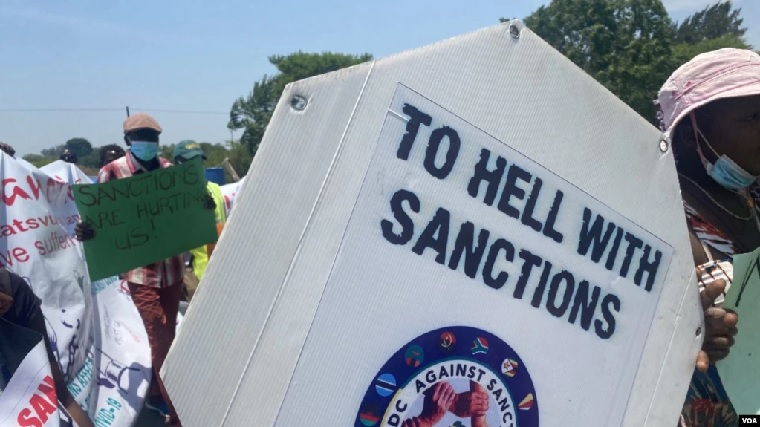Zimbabwe is under various sanctions imposed by the United States, the European Union, Britain, Canada and Australia.
The United States insists that its sanctions, which are the most comprehensive, are not hurting the poor but the people targetted, an argument that Douhan disagreed with.
“The designation of senior state officials as well as companies owned or controlled by them makes foreign companies and banks unwilling to do business with Zimbabwe’s public sector, preventing the Government from getting revenue for the exercise of its public functions and provision of essential services, resulting in the violation of labor and social rights of people involved in the public sector, whose salaries are reported to be much lower than in the private sphere; this has led to rising unemployment, especially among the most qualified professionals (engineers, doctors, teachers, university professors, judges, police officers), which at times is reported to reach 30-50 per cent,” Douhan said.
“It has also prevented the Government from using resources to develop and maintain essential infrastructure, disaster response plans and for social support programs, which has a devastating effect on the whole population of Zimbabwe, especially those in extreme poverty, women, youth, children, medical workers, and people with disabilities or life-threatening or chronic diseases, particularly in rural areas. It is reported that credit lines are periodically opened and humanitarian assistance provided for meeting urgent humanitarian concerns (HIV, cholera, COVID-19), but less – for development projects.”
In its submission to the UN special rapporteur, ZHOCD said sanctions had not achieved their intended purpose after more than 20 years. They were devoid of a broader national settlement frame work and remained elitist and excluded the participation of citizens.
It said sanctions had been used by some to justify government’s failure to provide services and national development and had created Zimbabwe as a negative investment environment thus negatively affecting ordinary citizens and not those targetted.
ZHOCD said Zimbabwe was confronted with many complex and inter-related issues that could not be addressed in isolation.
Five of these issues were:
- Addressing the humanitarian challenges the nation has been facing for some time now and have been increased by Covid-19,
- Rebooting the fragile economy which has struggled due to lack of international investment but also affected by corruption,
- Implementation of the 2013 constitution by making sure the laws ae properly aligned and key institutions are reformed,
- Healing and reconciliation of the hurts of the past that continue to pose threats for national unity, and
- International isolation created by the sanctions
“As ZHOCD we believe, the sanctions discussion should not be dealt with outside the broader national challenges,” the church organisation said.
(255 VIEWS)


